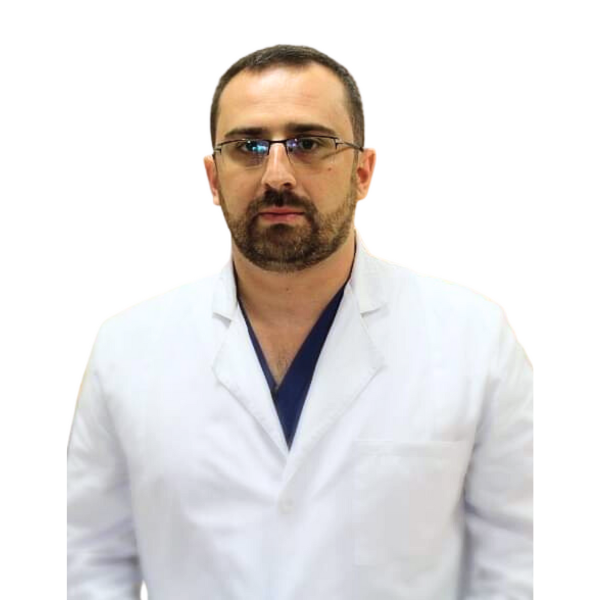Copyright © 2025 ყველა უფლება დაცულია.
დიზაინი და ვებსაიტი შექმნილია Concierge Batumi-ს მიერ.

Dr Irakli Bezhanidze
Dr. Irakli Bezhanidze is a highly skilled medical professional specializing in proctology and general surgery. With a diverse educational background, he holds degrees from Tbilisi Medical University, Kharkov University, and Batumi State University—demonstrating his commitment to continuous learning and excellence in the medical field.
With nine years of professional experience, Dr. Bezhanidze has managed a wide range of complex medical cases, allowing him to refine his surgical expertise and provide high-quality, patient-centered care. His dedication to staying at the forefront of medical advancements is reflected in his active participation in specialized courses and international conferences related to proctology and general surgery.
Dr. Bezhanidze’s proficiency in Georgian, Russian, Turkish, and English enables him to communicate effectively with patients from diverse cultural backgrounds, fostering a supportive and inclusive healthcare environment.
Known for his expertise, professionalism, and patient-focused approach, Dr. Irakli Bezhanidze remains a trusted specialist committed to delivering advanced surgical care and improving patient outcomes.
Get inspired with these must-read health articles at Concierge Blog Here and stay updated with the latest research from top international magazines.
Copyright © 2025 ყველა უფლება დაცულია.
დიზაინი და ვებსაიტი შექმნილია Concierge Batumi-ს მიერ.